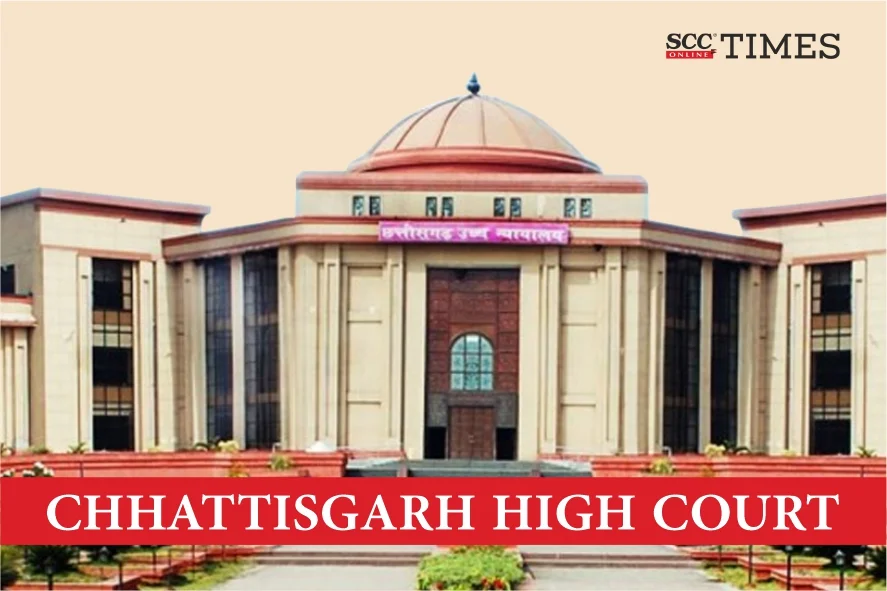Chhattisgarh High Court: Petitioner filed the present petition under Section 482 read with Section 53-A of Criminal Procedure Code, 1973 (‘CrPC’) for conducting a Deoxyribonucleic Acid (‘DNA’) Profiling Test of Respondent 3 and the petitioner’s first child in FIR registered for offence punishable under Sections 376(2)(n), 506 and 323 of the Penal Code, 1860 (‘IPC’). Narendra Kumar Vyas, J., opined that form the very beginning, the petitioner had taken a stand that she was subjected to sexual harassment by Respondent 3 and because of the physical relationship with Respondent 3, the petitioner’s first girl child was born. The Court opined that no other mode was available to unearth the truth except to issue direction for conducting DNA test, and thus, considering the facts and circumstances of the present case, the Court directed that the prosecution would take necessary steps for conducting a DNA test of the petitioner, her daughter and Respondent 3.
Background
In the present case, the petitioner stated that when she was about twelve-thirteen years, her mother visited the doctor, Respondent 3 for the petitioner’s treatment, who used to molest the petitioner. Respondent 3 committed sexual intercourse with the petitioner against her will, physically abused and threatened her. Respondent 3 committed sexual intercourse with the petitioner first time when she was about thirteen years and continued the same from 2005 till January, 2019 and also, threatened to kill her and her mother.
On 18-11-2020, the petitioner got married and moved to a village in Madhya Pradesh. Further, whenever the petitioner visited her hometown, Respondent 3 committed sexual intercourse against her will due to which, her elder daughter was born on 04-11-2011. However, the petitioner stated that her younger daughter was born from her husband. The petitioner further contended that Respondent 3 committed sexual intercourse with the petitioner in his house situated above his clinic and when the petitioner protested, he had beaten her with hands and fists.
Thus, the petitioner filed a complaint and accordingly, an FIR was registered for offence punishable under Sections 376(2)(n), 506 and 323 of the IPC against Respondent 3. After due investigation, recording of statement, medical examination, the police submitted the final report and accordingly, the charges were framed on 07-09-2022.
On 11-05-2022, Respondent 3 gave his consent for conducting DNA profiling test along with other medical examination. Subsequently, the police filed an application before the Chief Judicial Magistrate, Sukma (‘CJM’) for collecting DNA samples of the petitioner, her daughter and Respondent 3, but the request was rejected vide order dated 12-05-2022, stating that the same was not feasible at this stage. However, the said order was challenged by filing revision petition before the Sessions Judge, Dantewada wherein, the Sessions Judge set aside the order passed by the CJM and directed for collecting blood sample of the petitioner, her daughter and Respondent 3. Thus, the CJM vide order dated 27-06-2022, directed for collecting sample, but Respondent 3 denied giving his blood sample. Accordingly, the CJM directed Investigating Officer to take necessary steps for conducting DNA test.
Since, Respondent 3 had not given his consent for conducting DNA test, the petitioner filed the present petition for issuing direction to conduct DNA test of Respondent 3 including the petitioner and her daughter.
Analysis, Law, and Decision
The Court relied on Inayath Ali v. State of Telangana 2022 SCC OnLine SC 1867, and opined that the order for DNA test could not be passed in routine manner but it could be passed only when an exceptional case was made out. The Court opined that the form the very beginning, the petitioner had taken a stand that she was subjected to sexual harassment by Respondent 3 and because of the physical relationship with Respondent 3, the petitioner’s first girl child was born.
The Court opined that to collect true and correct fact and to decide the controversy, only scientific mode which was available, was that of DNA test. Further, the Court opined that since the petitioner and her minor girl had already given DNA test, and as such the submission made by Respondent 3, that the paternity of the minor girl would be adversely affected deserved to be rejected. The facts and circumstances of the case required a scientific analysis of the fact which could be done through directing for DNA test.
The Court opined that no other mode was available to unearth the truth except to issue direction for conducting DNA test, and thus, considering the facts and circumstances of the present case, the Court directed that the prosecution would take necessary steps for conducting a DNA test of the petitioner, her daughter and Respondent 3.
[XYZ v. State of Chhattisgarh, 2024 SCC OnLine Chh 1177, Order dated 21-02-2024]
Advocates who appeared in this case :
For the Petitioner: Amit Buxy, Advocate.;
For the Respondents: Satish Gupta, Govt. Advocate; Pravin Dhurandhar, Advocate.







